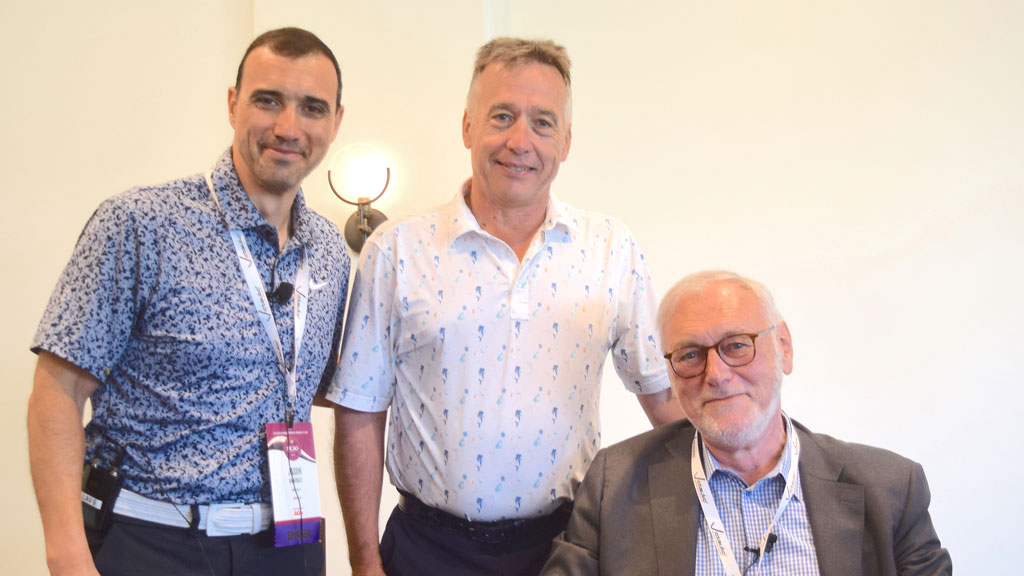The time is right for mechanical contractors to address the traditional dominance that dictatorial owners and GCs enjoy in the construction pyramid, says Mechanical Contractors Association of Canada (MCAC) executive Derek Ermen.
It’s a strong take but as Ermen, the outgoing MCAC board chair, told his fellow delegates during a legal panel discussion at MCAC’s recent conference in Napa, Calif., it’s not right that mechanical contractors with their extensive expertise and professionalism should be disrespected as mere “subs” at the bottom of the hierarchy.
“I think that whole pyramid has to be turned upside down,” said Ermen after the Oct. 20 session.
“The old bad boss could come and scream at us anytime they wanted to call us. And we just had to take it. OK, well, that’s not going to work in today’s organizational structure…We’re going to be a professional industry.
“And I think the nefarious players are going to learn really quick that they can’t operate the way they used to operate.”
Ermen and other delegates were active participants during the conference discussion, billed as The New Normal for the Mechanical Contractor – How the Legal Landscape has Changed. Ontario construction lawyers Geza Banfai and Jason Annibale, both of McMillan LLP, ran the session.
“It is no exaggeration that mechanical contracting community has had to adapt to more dramatic change in the contractual and legal landscape in recent years than ever before. And the pace of this change continues,” explained MCAC board member Wayne Davidson in introducing the lawyers.
The discussion focused on two relatively modern trends that Banfai said the mechanical sector should become aware of as it deals with today’s “constant change”: new project delivery models such as Integrated Project Delivery (IPD), progressive design build and, to a lesser extent, alliance; and innovations in dispute resolution, such as arbitration.
The key driver of IPD is multi-party co-operation, Banfai said.
“The basic idea behind IPD is that rather than use the traditional contract project delivery models which involves people sitting in their isolated silos, engaged in two-party contracts with one another, you get rid of all that, you have just one contract which can have as many as 10, 15, 20 parties all engaged in a single project,” he said.
The participants all identify their profit expectations at the front end, write them down and the project funding is set aside in what used to be called a risk pool and now is better described as a profit pool, Banfai said.
If problems arise, “the members work to solve the problem because the screw-up is threatening your profit,” he said.
“It seems like a radical concept. Interestingly, it seems to work.”
“Is it for this industry? Of course, it is,” said Banfai of the mechanical contracting sector.
First it starts with an owner who gets it and champions it, he said. Then, “At the design and trade level, the contractor level, you also need people who understand the model, who can work collaboratively in the truest sense of the term.”
Ermen said later the IPD model and the others represent “a natural progression of some of the things that were already happening anyway. You were having groups that were creating a team.”
Moving on to adjudication, Annibale explained in an era with new risks and complexity, litigation and arbitration are traditional dispute mechanisms that mechanical contractors generally want to avoid if at all possible.
Arbitration, now codified in legislation in Ontario, Saskatchewan and Alberta, is the industry’s “better way.”
Instead of sending disputes to court, where a judge might not have an extensive understanding of construction practices, arbitration with its specialized panels is a way to defuse conflicts that might otherwise get larger, dealing with matters quickly while the project is still in process and allowing parties to sort issues out themselves, Annibale said.
In Ontario, the Ontario Dispute Adjudication for Construction Contracts is responsible for administering construction-related adjudications and for training and qualifying adjudicators.
In the context of the construction hierarchy, Annibale stated, “It also encourages, in my view, communication between and amongst the parties in the construction pyramid.
“So knowing that there is the availability of this quick and dirty dispute resolution process, parties will get real about their position, play less of a silly game and resolve a dispute related to payment quickly.”
Follow the author on Twitter .









Recent Comments
comments for this post are closed